

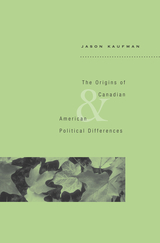
Why do the United States and Canada have such divergent political cultures when they share one of the closest economic and cultural relationships in the world? Canadians and Americans consistently disagree over issues such as the separation of church and state, the responsibility of government for the welfare of everyone, the relationship between federal and subnational government, and the right to marry a same-sex partner or to own an assault rifle.
In this wide-ranging work, Jason Kaufman examines the North American political landscape to draw out the essential historical factors that underlie the countries’ differences. He discusses the earliest European colonies in North America and the Canadian reluctance to join the American Revolution. He compares land grants and colonial governance; territorial expansion and relations with native peoples; immigration and voting rights. But the key lies in the evolution and enforcement of jurisdictional law, which illuminates the way social relations and state power developed in the two countries.
Written in an accessible and engaging style, this book will appeal to readers of sociology, politics, law, and history as well as to anyone interested in the relationship between the United States and Canada.
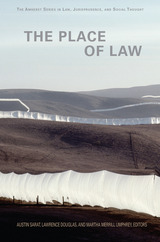
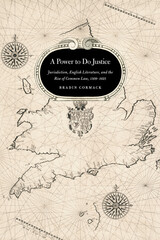
A Power to Do Justice shows how Renaissance writers engaged the practical and conceptual dynamics of jurisdiction, both as a subject for critical investigation and as a frame for articulating literature’s sense of itself. Reassessing the relation between English literature and law from More to Shakespeare, Cormack argues that where literary texts attend to jurisdiction, they dramatize how boundaries and limits are the very precondition of law’s power, even as they clarify the forms of intensification that make literary space a reality.
Tracking cultural responses to Renaissance jurisdictional thinking and legal centralization, A Power to Do Justice makes theoretical, literary-historical, and methodological contributions that set a new standard for law and the humanities and for the cultural history of early modern law and literature.

Go ahead and try to make a federal case of it. That may seem to be your right, but as Larry Yackle reveals in Reclaiming the Federal Courts, the guardians of that right don’t see it that way. A systematic study of the role the federal courts play in enforcing the Constitution, this powerful book shows how the current conservative Supreme Court has undermined that role by restricting citizens’ access to these courts.
Yackle focuses on judicially created doctrines that channel certain cases away from the federal courts (which tend to hold government power in check) and into state courts (which tend to allow government a relatively free hand). In doing so, he clearly shows how seemingly arcane and confusing legal technicalities actually tilt the delicate balance between government power and individual liberty in the United States. As he traces the historical underpinnings of the federal judicial system, Yackle explains how access to the federal courts in federal-question cases is intertwined with the most fundamental elements of American Jurisprudence—Legal Formalism, Legal Realism, Legal Process, and the Civil Rights Movement—as well as with the recent conservative retrenchment. He goes on to examine specific modern doctrines. Here we see how the Rehnquist Court’s restrictive rules deny citizens standing to sue in federal court, disclaim the federal courts’ jurisdiction even when standing is conceded, channel cases away from the federal courts even when they have jurisdiction, and frustrate the right to petition the federal courts for a writ of habeas corpus—perhaps the most fundamental right of any citizen.
Yackle’s straightforward style makes his description and analysis of existing law intelligible to students and others who wish to understand how the federal judicial system actually functions—or fails to function. The book concludes with concrete recommendations for congressional action to correct the subtle but significant injustice that Yackle so clearly and cogently exposes.
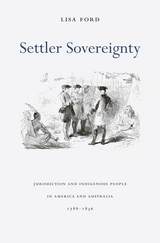
In a brilliant comparative study of law and imperialism, Lisa Ford argues that modern settler sovereignty emerged when settlers in North America and Australia defined indigenous theft and violence as crime.
This occurred, not at the moment of settlement or federation, but in the second quarter of the nineteenth century when notions of statehood, sovereignty, empire, and civilization were in rapid, global flux. Ford traces the emergence of modern settler sovereignty in everyday contests between settlers and indigenous people in early national Georgia and the colony of New South Wales. In both places before 1820, most settlers and indigenous people understood their conflicts as war, resolved disputes with diplomacy, and relied on shared notions like reciprocity and retaliation to address frontier theft and violence. This legal pluralism, however, was under stress as new, global statecraft linked sovereignty to the exercise of perfect territorial jurisdiction. In Georgia, New South Wales, and elsewhere, settler sovereignty emerged when, at the same time in history, settlers rejected legal pluralism and moved to control or remove indigenous peoples.
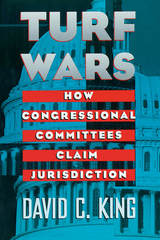
Political scientists have long maintained that jurisdictions are relatively static, changing only at times of dramatic reforms. Not so, says King. Combining quantitative evidence with interviews and case studies, he shows how on-going turf wars make jurisdictions fluid.
According to King, jurisdictional change stems both from legislators seeking electoral advantage and from nonpartisan House parliamentarians referring ambiguous bills to committees with the expertise to handle the issues. King brilliantly dissects the politics of turf grabbing and at the same time shows how parliamentarians have become institutional guardians of the legislative process.
Original and insightful, Turf Wars will be valuable to those interested in congressional studies and American politics more generally.
READERS
Browse our collection.
PUBLISHERS
See BiblioVault's publisher services.
STUDENT SERVICES
Files for college accessibility offices.
UChicago Accessibility Resources
home | accessibility | search | about | contact us
BiblioVault ® 2001 - 2025
The University of Chicago Press









